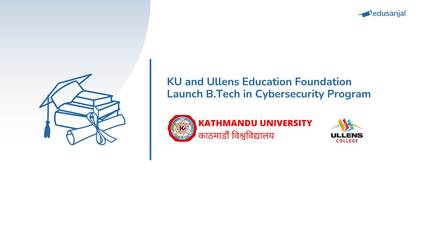Bachelor’s in Business Studies (BBS) is an undergraduate programme that prepares students to become competent managers of any organisation in any sector. Tribhuvan University (TU), the oldest university in the country, has been offering this course in various colleges affiliated to it.
From the year 2014 (2070 BS), TU has changed this three-year course to a four-year academic programme. As such colleges have already commenced this new course that has seen addition of different subjects that are claimed to meet the “need and demand of the changing market trend”.
The changes
The four-year BBS programme gives core and conceptual idea of business studies. Students pursuing the new BBS course can successfully handle any managerial level position, as per Naresh Shrestha, Principal of Prime College, Khusibun.
This is because the course “is focused to develop required attitudes, abilities and practical skill in students, which constitute a foundation for their growth into competent business managers”.
So, what does the new course comprise?
Till date four new subjects have been included in the new course. Other than that the subjects are same as that of the three-year programme. Business Communication (IInd Year), Taxation and Auditing, Organisational Behaviour (IIIrd Year) and Report Writing, Entrepreneurship and Enterprise Development (IVth Year) are the new additions.
Till date, “only the course of BBS Ist and IInd Year has been finalised” as per Prakash Singh Pradhan, Campus Chief, Shanker Dev Campus, Putalisadak and colleges have started running the Ist Year classes. However, colleges are “still waiting for the courses of IIIrd and IVth Year to be confirmed from the Dean’s office as those courses are in the process detailing”, informs Pradhan.
Adapting to change
Everything changes with time and we must adapt ourselves to the new trend set by the change. Thus, timely revision is required in any course. This is one reason due to which BBS was made a four-year course.
Other Management courses like BBA are adapting themselves to the changing scenario that demands
in-depth knowledge on research, skills or report writing, communication, et cetera.
Nevertheless, not all students despite willing to equip themselves with aforementioned skills can enrol in BBA or others such courses as they are expensive in comparison to BBS, feels Pradhan.
Thus, with the initiation of this four-year BBS that has been improvised as per the need of time, “students can get opportunities in this competitive market,” says Pradhan.
A BBA Ist Year student at Prime College, Priyanka Bajracharya, is excited as she has heard the four-year programme offers practical course as well.
“I believe it has become one of the competent business courses we have in the country,” she opines.
Easier entry to foreign varsities
Any student who wants to pursue his/her further education after the Bachelor’s level in foreign countries need to complete 16 years of schooling as many universities have this requirement. And the students of BBS are no exception to it.
Pradhan elaborates, “The global trend is such that a student willing to study in higher level after BBS must have schooling of 16 years.” Thus, the new change is expected to help students in the days ahead. “Students completing four-years BBS course from Nepal will find it easier to get admission in higher level. They won’t need to face the hassle that would arise from having only 15 years of schooling on completion of their Bachelor’s level,” he further informs.
Even students like Ramesh Bhandari and Samjhana Shrestha — BBS Ist Year students at Shanker Dev — are happy with the new course which they hope will ease students who want to pursue Master’s level education in other nations.
The other side
Despite many students and teachers welcoming this change, some feel that much hard work and homework is necessary to make it a successful and beneficial.
Sanjaya Poudel, BBS IIIrd Year student at Shanker Dev Campus, doubts the newly introduced four-year course. He feels the new course is just a propaganda that aims to send all Nepali students to other countries for further studies. “Not all students will go abroad for higher studies,” he expresses adding, “If this course is also limited to theoretical knowledge without practical aspects like the earlier programme, then four-year BBS will be wasting students’ one year.”
Meanwhile, Bhandari feels the four-year BBS should be made semester-based rather than running it as a yearly programme. The process of holding exams once a year and letting the students wait for the results for a long time is tedious and frustrating.
There is also need to break the traditional ways of teaching that lack interaction among teachers and students, as per Naresh. “There is need of a more interactive system where students can remain active through project works, presentations and case studies”.
Nonetheless, the infrastructure of the college is another challenge as per Pradhan. “The existing infrastructure is insufficient for four-year programme. Likewise, we have arranged teachers based on the three-year course and it would create problems in the next session. But I hope the body authorised has plans to address these problems,” states Pradhan.
source: the himalayan times,12 feb 2014












